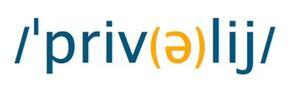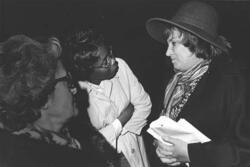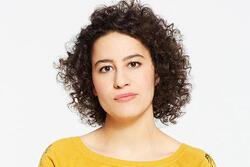Privilege and the Chosen People
I’ve been raised with an instilled sense of pride for my Jewish identity. My childhood has been filled with memories of sleeping under my dad’s tallit during shul, celebrating holidays with family and friends, and the warmth of challah in my belly every Friday night. I enjoy wearing my numerous hamsa necklaces to school, and teaching my friends about the rules of kashrut. I feel as if I won the lottery by being born Jewish, as so many of my most cherished memories and values are inherently tied to this part of my identity. As proud as I am of my Jewish identity, I’ve always been troubled by one of the fundamental ideas in Judaism: that Jews are “the chosen people.”
I take issue with the concept that just because I was born Jewish I inherently have a special, privileged relationship with God. I know many people of other faiths who are more religious than I am, and I don’t like the idea of perceived superiority passed on by birth or circumstance rather than by merit or work. This supposed religious privilege—this implied “chosenness”—has made me consider my relationship to privilege in a larger sense.
Just as I feel that my Jewish identity should not lead to preferential religious treatment, I feel I must also evaluate other ways that aspects of my identity lend themselves to unfair advantages.
I am a white, upper-middle class, Jewish teen in Chicago, and have benefited from various forms of privilege my whole life. I went to private school until ninth grade, I have ample representation of people who look like me in the media, and I’ve never had to get a job in order to support myself or my family. Most recently, with my transition to public high school last year, I’ve gotten to know people whose backgrounds differ greatly from mine in terms of culture, finances, family dynamics, and much more. For example, last week I learned that a senior who goes to my school works up to 40 hours per week at Chipotle in addition to school. I was promptly snapped out of my complaints about how hard it is to get all of my homework done.
When I was younger, I wasn’t aware of this privilege. When I became aware, I didn’t know how to handle this knowledge, so I just ignored it. I figured that I couldn’t do anything to change my privileged status, and therefore it didn’t matter. However, as I’ve gotten older I’ve come to realize that if I truly want to be an intersectional feminist as well as a righteous Jew, I must recognize my own privilege, and be part of the fight against the structures that make it possible.
To be perfectly honest, I’m still working on recognizing my privilege as part of my intersectional feminism. For example, I only began to significantly question the Women’s March once I heard about possible anti-Semitism, but I hadn’t previously taken issue with the March’s overwhelming whiteness. This realization taught me that I need to take into account a wide variety of needs and viewpoints when it comes to activism—I can’t just react when something has implications relating to my identity.
Whether it’s questioning Judaism’s supposed superiority as “the chosen people,” or acknowledging my privilege and using it to advocate for and stand with those who don’t have it, I’ve come to understand that recognizing one’s own privilege and examining its impact is a key aspect of approaching the world in a truly intersectional way.
This piece was written as part of JWA’s Rising Voices Fellowship.








Super proud to be related to someone so "woke" without being obnoxious about it, but you may be misinterpreting the significance of being "chosen." The Jews were chosen for the burden of fulfilling the Commandments, which is not an easy thing, nor was it a desirable thing to the other peoples of that time & region. It's not a question of religiosity, but of obligation & being held to a higher, almost impossible standard (you know, like Israel). It doesn't make us superior; on the contrary, it's a constant reminder of all the ways in which we fall short.
Excellent points!
Love this!